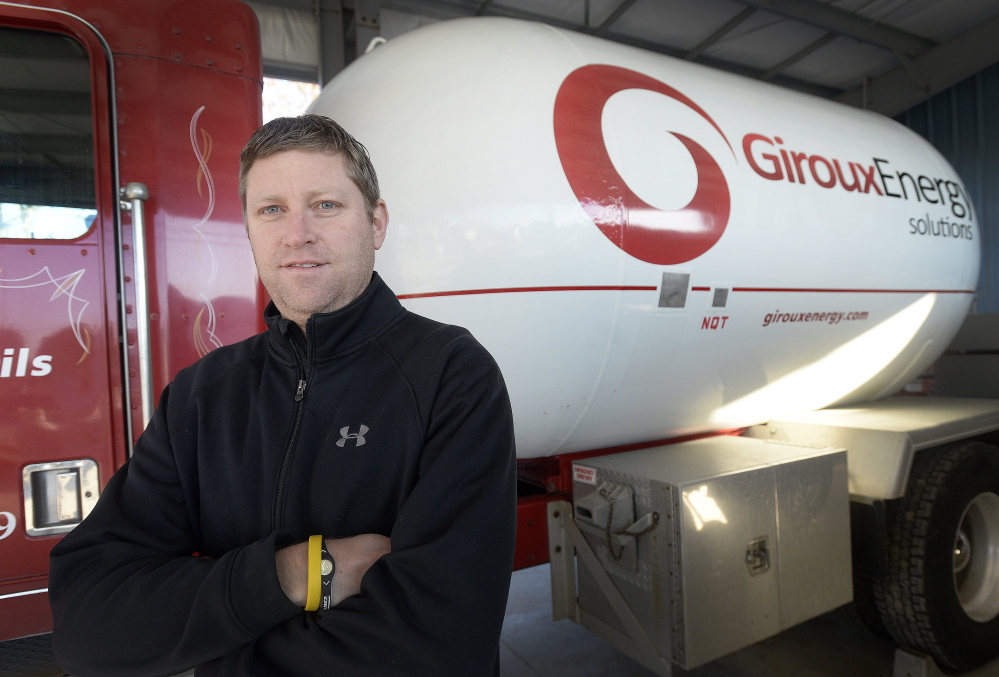The Giroux family has defied the odds. Business experts will tell you that only a small fraction of family-owned businesses will survive multiple generations, but Giroux Energy Solutions has. It’s now led by Steve Giroux, whose grandfather who founded the oil delivery business in 1959. On Wednesday, the company strengthened its chances of continuing to the next generation by buying the oil delivery business Yerxa’s in Portland (the deal did not involve Yerxa’s power equipment business and the price was not disclosed). The acquisition will expand Giroux’s customer base by about 15 percent and – almost as importantly, he said – bring on an additional oil burner technician, a trade much in demand. The company has about 25 employees during the peak winter season.
Q: It seems the oil delivery industry is increasingly being consolidated. Is the purchase of Yerxa’s part of that?
A: We certainly have been seeing it. Quite a few of the bigger companies have sold out because of the extreme changes going on in the industry. One of the biggest oil companies in New England, Dead River, is still family-owned, but Downeast Energy got bought out by a company from Oklahoma a few years ago.
But I think Mainers like that personal connection. Our goal is to remain family-owned. It’s into my generation, so there is youth involved and my dad and his two brothers (who have retired but still own the company) have stood behind us 100 percent. There’s a lot of family pride involved.
Q: It seems like more customers opt for price protection plans rather than pay market prices. Is that the case with your customers?
A: In our particular company, we have a high percentage of folks who do price protection, either a cap program or a fixed price option. The fixed price is a set price for the season, no matter what the market does. In a cap price, they lock in a cap and pay a downside fee (of 25 cents a gallon) that allows them to benefit if the price goes down. I think this is the first year since 2008 that prices have drastically dropped – they’re drastically lower.
The price protection plans have definitely increased in popularity the last 10 to 12 years. These plans have been around for a long time but because of price volatility over the last few years, they’ve become increasingly popular.
Q: It seems like customers are very reluctant to change oil companies. True?
A: Customers are very loyal. In order for us to gain new customers, we either have to buy another company or a customer has to have had a very bad experience. We’re available 24 hours a day for our customers. That’s a harder thing this day and age, finding people who want to be available. These guys (the service people) make a good living because there’s not a huge talent pool. It’s not a sexy thing to be a tradesman – an electrician, a plumber. I’ve got a son in college and a daughter in high school and they’re into iPads and iPhones. There are a lot of distractions out there. But you’re always going to need tradesmen. The best technicians over the years have been trained in-house by us. We’ll take them on green and put them through school and our trade association, the Maine Energy Marketers Association, is doing a great job. They make sure kids get into trade schools and when the kids graduate, they’ll invite all the (fuel) companies in the state to a kind of job fair.
The good thing is, the more guys you have, the more spread out the on-call schedule is. And we work well as a team. If we’re in the middle of a cold snap, the rest of the team is good about helping the guys on call. And we’re seasonal, so come April through November, the night calls are minimal. The same holds true for delivery.
Q: Have you seen a lot of customers convert from oil to natural gas? How has that affected your company?
A: It’s gone from like 90 (percent of homes heated by oil) down to 70 (percent). But we’ve diversified and got into propane about 10 years ago and that’s helped us battle the defections to natural gas. Natural gas is a utility that can’t provide the service that a local dealer provides. The utilities are not a local company like us. A lot of my customers may have my cellphone number or my service manager’s cellphone, so they can get a hold of us. In Maine, there’s still high value attached to that. Of course, oil prices dropping like they are doesn’t hurt our cause. It’s certainly slowed down the mass exodus. People are stopping and thinking about conversions now.
Send questions/comments to the editors.




Success. Please wait for the page to reload. If the page does not reload within 5 seconds, please refresh the page.
Enter your email and password to access comments.
Hi, to comment on stories you must . This profile is in addition to your subscription and website login.
Already have a commenting profile? .
Invalid username/password.
Please check your email to confirm and complete your registration.
Only subscribers are eligible to post comments. Please subscribe or login first for digital access. Here’s why.
Use the form below to reset your password. When you've submitted your account email, we will send an email with a reset code.